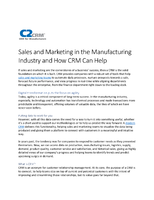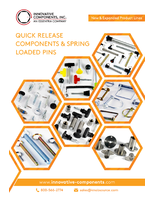Framework Platform is designed for OpenAccess database.
Share:
Press Release Summary:
Rocket Framework(TM) extends OpenAccess database services to include GUI, scripting, schematic and layout visualization, timing, and Library Smart(TM) Design data organization. It supports integrated static timing engine, Rocket Timer, for incremental timing analysis of various OpenAccess applications. Platform is targeted at software developers, IDMs, and EDA companies for development of proprietary tools or customized IC design flows on OpenAccess.
Original Press Release:
Silicon Navigator Unveils Rocket Framework - First Native Framework for the OpenAccess Database
Framework Components for OpenAccess to Jump Start Development and Integration
Cupertino, Calif. -- April 6, 2005 -- Silicon Navigator Corporation unveiled today its Rocket Framework(TM) built on the OpenAccess database. The Framework extends services beyond the core database to include a Graphical User Interface, Scripting, Schematic and Layout Visualization, Timing and Library SmartTM Design Data Organization. The Rocket Framework supports a fully integrated Static Timing Engine, the Rocket Timer, providing fast incremental timing analysis for a wide variety of OpenAccess applications.
Silicon Navigator is closing the gap between closed proprietary EDA Frameworks and the capabilities available from the open sourced OpenAccess database. These new extensions and services enable a broader set of EDA applications on OpenAccess. Silicon Navigator leverages the OpenAccess database created by Cadence Design Systems Inc. (NYSE: CDN) with open availability from the Silicon Integration Initiative (Si2) and controlled by the community of member companies of the OpenAccess Coalition.
The Rocket Framework provides many essential services required by front-end applications, layout, optimization, and analysis based on OpenAccess. The platform is targeted at software developers, IDMs, and EDA companies that wish to jump start the development of proprietary tools or customized IC design flows on OpenAccess. Silicon Navigator originally developed the Framework for its own applications but as the company kept encountering customers that needed the same set of baseline services, it made the dramatic decision to make these capabilities available to others and allow customers and partners to integrate their software at the API level.
Framework Capabilities
The Rocket Framework is built with the most modern software components available. Built using industry standard graphic packages, such as Qt and OpenGL graphics, it provides extensibility in C++ for software developers, and TCL for end-user scripting. Visualization of netlists, schematics, layouts, timing data, and parasitics from the OpenAccess database are all supported. Software components are provided with customizable API's that enable developers to visualize their data, create new displays, and overlay analysis objects on top of OpenAccess physical and netlist data.
The lack of RTL input capabilities for front-end designs and timing analysis have been major issues for OpenAccess developers. The Rocket Framework provides the means to load both gate-level netlists as well as elaborated RTL through its front-end engines. Verilog RTL input capability in the Rocket Framework enables customers to develop Linting, Formal Verification, and Analysis engines on OpenAccess. The addition of a functional API for Liberty models (Synopsys .lib format) provides EDA developers using the Rocket Framework with access to all the functional, timing and parasitic data required by their applications.
Library Smart data organization provides developers with access to both OpenAccess native data as well as an indexing mechanism to access Timing, Power, Parasitic, and Process Data in the Design Kits not normally native to the OpenAccess database. This dynamic mechanism allows software developers using the Rocket Framework to access models at different process corners as well as a range of voltage and temperature operating conditions.
Framework Engines
The Rocket Framework is powered by engines that extend and directly interface to the OpenAccess database to increase flexibility and performance. Rocket Timer is an incremental Static Timing Analysis engine that supports full industry standard SDC (Synthesis Design Constraints) and Liberty timing models (Synopsys .lib) formats. Netlist data, placement locations and routing parasitics are extracted directly from the OpenAccess database.
The RTL elaboration engine processes Verilog RTL, as well as gate level netlists, and creates an OpenAccess database in minutes that can be used for early design exploration, or RTL analysis. The elaborated models provide the functional and connectivity basis for Linting, Formal Verification, and Design Analysis.
Netlist Visualization, in the form of schematics, is performed by an ultra-fast schematic Place and Route engine that provides graphical feedback for even the largest designs. The same visualization engine is integrated with static timing analysis to display critical paths and clock trees during timing optimization and logic of interest during debugging. RTL visualization can be accomplished in a similar manner providing a higher level of feedback to end users.
J. George Janac, founder and CEO of Silicon Navigator, said, "We see the need to enable a larger set of users on OpenAccess. The higher the level of functionality available to software developers, the more they can concentrate on building differentiated algorithms and innovative products. Licensing a complete and well organized Framework can save years of effort when you're developing a new EDA tool."
Rocket Framework Interoperability
OpenAccess and the Rocket Framework provide the common platform for integration and development that CAD groups and chip designers need in order to support the a wide variety of implementation flows for low power, structured ASICs, high performance design and main stream implementation flows.
Between the Rocket Framework and OpenAccess the most commonly used industry standard formats can be imported and exported providing the bridge to existing EDA flows. Verilog, VHDL, LEF, DEF, SPEF, GDSII, Liberty, SDC and Timing Reports are all part of the combined platform. Additionally, commercial and open source interfaces are available to existing Cadence, Mentor and Milkyway tools. Silicon Navigator is a key provider of solutions for improving existing design flows as well as developing new flows with ever increasing silicon intellectual property content.
"The economic solution for software development is to re-utilize software components for several different applications" said Jake Buurma, President of Silicon Navigator, "Even the most innovative start ups won't get funded if it takes more than two years to get their first products out."
Pricing and Availability
Rocket Framework development seats are priced in bundles as low as $50K/year for a Time-Based License (TBL). Development seats enable programmers to create applications based on the Rocket Framework for internal or external deployment. Framework end-user seats are priced from $5K-$15K/year for a TBL, depending on the choice of licensed features. Contact Silicon Navigator Corporation for pricing on specific OpenAccess native engines.
About Silicon Navigator
Founded in late 2003, Silicon Navigator Corporation (or Silicon Navigator) is a private Electronic Design Automation (EDA) software company whose products represent the next generation of Library Smart tools for chip design. Silicon Navigator is the only emerging company to have a seat on the OpenAccess Change Control Team and has been a member of the Si2 coalition since its founding.
Silicon Navigator corporate headquarters are located at: 10050 North Wolfe Road, Suite SW2-260, Cupertino, Calif. 95014. Telephone: 408-200-0280. Facsimile: 408-200-0281. Email: info@SiNavigator.com. Website: www.SiNavigator.com.
For more information, contact:
Georgia Marszalek, ValleyPR for SiNavigator, (650)345-7477, Georgia@ValleyPR.com
Library Smart and Silicon Navigator are trademarks of Silicon Navigator. Silicon Navigator acknowledges trademarks or registered trademarks of other organizations for their respective products and services.




